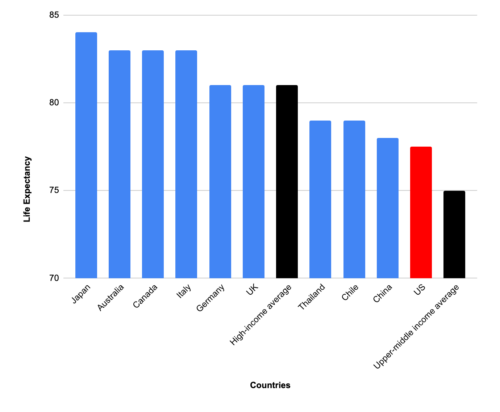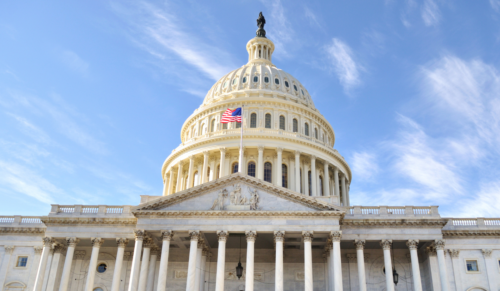Adapting U.S. China Policy to the Information Age
By: / 06.04.2014
Since the tanks rolled into Tiananmen Square 25 years ago today, the U.S. has not hesitated to criticize China’s dismal record on human rights and civil liberties. Not much has changed. Since traditional state-to-state diplomacy has done little to affect China’s behavior, the American government needs to change tack. If Washington is serious about change, it needs an information age strategy that directly targets and engages its greatest ally for change: the Chinese people.
The Internet has revolutionized communication, left deep impressions on China, and has opened up a new avenue for foreign policy action. Beijing has banned Twitter and Facebook, but their Chinese equivalents, Weibo and Wechat, have over 500 million and 355 million users respectively. Social networks are proven activist tools, used during uprisings such as the Arab Spring for disseminating information and organizing protests. But there are several steps Washington could take to help Chinese human rights, democracy activists and environmentalists connect, get access to information and publicize their movements.
The first step is to provide unfiltered, encrypted Internet access. One method would be for the State Department to sponsor Virtual Private Network (VPN) services to distribute to Chinese civic society groups. VPN’s enable users to view the global internet and all traffic is protected. This technology is already used widely by expats, well-off citizens and domestic businesses with privacy concerns. Despite several attempts, VPN providers consistently thwart government attacks on their networks, and any permanent blockage would additionally run the risk of damaging domestic businesses who also rely on these networks. By contracting with VPN providers, (most of them outside of China), State would provide Chinese activists with access to reliable information and a more secure, private organization platform.
A digital age strategy should also include exposing the Chinese public to different kinds of information. The official voice of the United States government today – including statements by officials, Congressional hearings, or government news outlets such as Voice of America – is overwhelmingly censorious. These criticisms are all valid, but such public shaming often lends credence to the CCP refrain that Westerners want to destabilize, bully and threaten China. There is a nuanced difference here between standing up for democracy and actually bringing about democracy. When Congress calls for the Chinese embassy’s street in D.C. to be renamed for a jailed dissident – few regular citizens will be aware, and those who are may not get the point.
Democratic evolution is served by giving Chinese citizens facts about their life and our system, thus letting the contrast speak for itself. For example, the American embassy in Beijing maintains @BeijingAir, a Twitter handle with automated readings of air quality in the capitol every hour on the hour. Even though Twitter is blocked, the readings are smuggled into Chinese social media and taken as the standard, reliable reading for air quality. So much so that when the consulates in Shanghai and Guangzhou started doing the same, Chinese officials complained to the media that the U.S. was purposefully trying to make China look bad.
The fact is, they don’t need help looking bad. Straight, localized information about rampant corruption, environmental degradation, and harsh repression are powerfully subversive of party control. That’s exactly why the CCP has kept a choke hold on the flow of information. Instead, they produce nonsensical propaganda, such as a claim that Beijing’s air has gotten better every year for the last 14 years. Chinese social media outlets such as Weibo, We Chat, QQ, Renren, radio broadcasts and podcasts should be flooded with accurate, reliable local Chinese news.
Radio Free Europe (RFE) in Turkmenistan provides an example of this strategy at work in another authoritarian environment. The current RFE station director changed the programming from “long, turgid segments featuring Turkmen dissidents” to news stories based on vetted listener tips and story requests. The response was overwhelming, as website views shot from a few hundred to 14,000 per day over two years.
Honest information also gives civil activists a fact base for comparison. Last year, for instance, a picture of U.S. Ambassador went viral. A Chinese netizen snapped a shot of the Ambassador buying his own coffee and uploaded it. As the image went viral, comparisons between aloof, corrupt Chinese officials to the wholesome do-it-yourself Chinese American flew and again, Chinese officials complained. In the same vein, when President Obama releases his tax returns every year, that story should be online, in Chinese. The idea of Chinese President Xi Jinping reporting his wealth details is inconceivable. The U.S. debate about fracking – showing how regular citizens have a say and can lobby the government – should be reported. When a U.S. corporation is investigated and penalized, public trials and all should be available as an example of everyday democracy at work.
The Tiananmen Square massacre still holds two important lessons for American policy makers. First, the Chinese people can rally for change, and many aspire to real democracy. Second, there is no limit to what the CCP will do to stay in power. The violation of basic human liberties by the Chinese government is and should be news. But rhetoric and policy both need to balance the stand against the Chinese government with shows of support for the Chinese people. The best way to show our support is by promoting information. Access to information matters, the distribution of accurate information matters, and a basis for comparison matters.
China has been compared to a boiling pot of water. The heat continues to rise while the government keeps pressing harder on the lid. For 25 years the U.S. has tried to negotiate with the government to take its hand off the lid; they will not. It’s time to add fuel to the fire.






